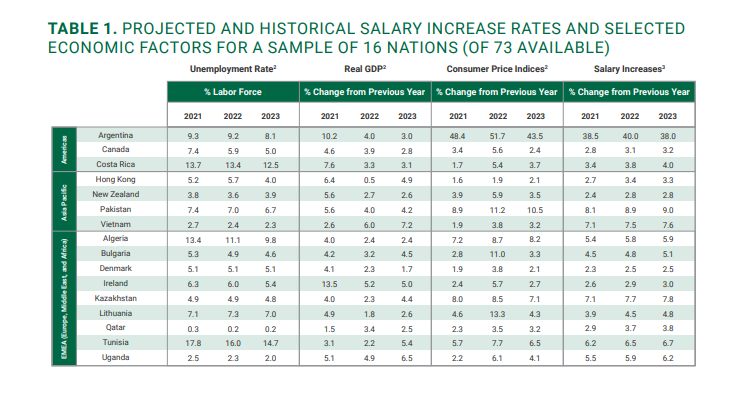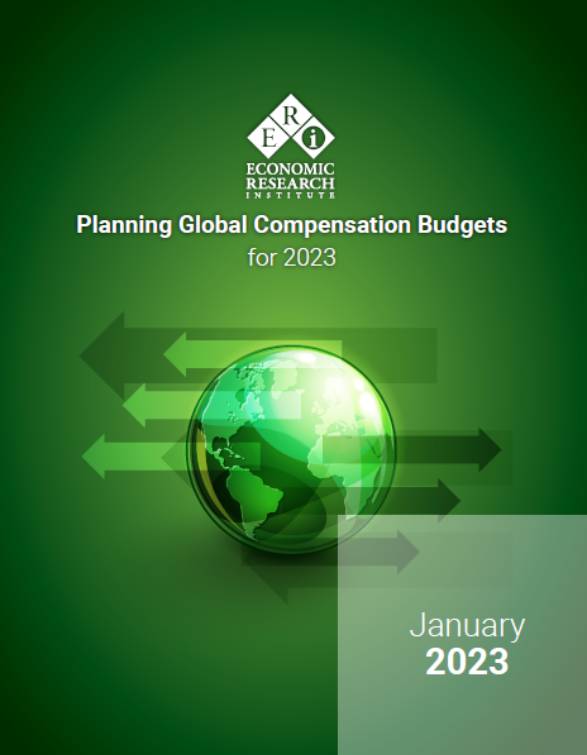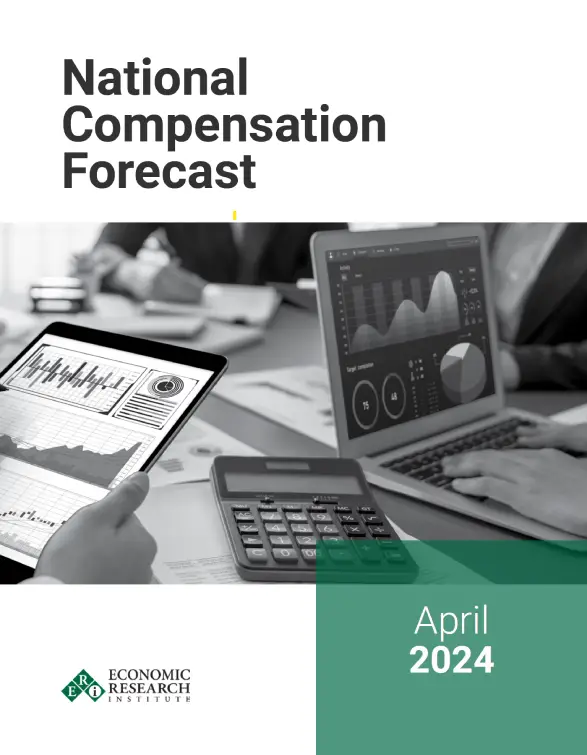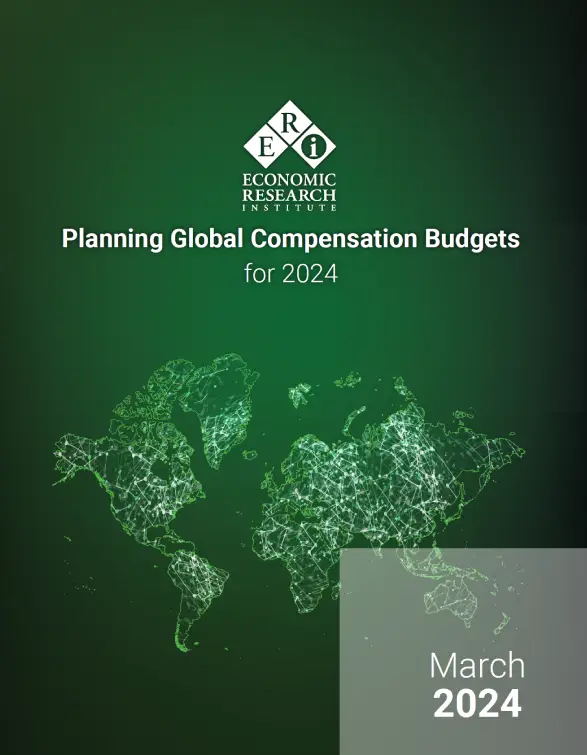This blog post is comprised of excerpts from ERI’s Planning Global Compensation Budgets for 2023, first published in January 2023. For a more in-depth look at ERI’s salary projections, download the complete white paper here.
PEAKING INFLATION AND LAGGING GROWTH
From a compensation planning perspective, the resurgence in labor demands due to economic recovery and a slow labor supply has produced a demand-supply imbalance that is increasing wage pressure. However, nominal wage growth has generally stayed below sharp inflation fueled by the pandemic, war-induced supply chain disruptions, commodity price shocks, fiscal support, pent-up consumer demand, and the consumer trend towards goods over services. Considering rising price inflation, real wages have been flat or falling.
The International Monetary Fund (IMF) has released updated international statistics on unemployment, GDP, and consumer prices for 2022 and 2023 to produce revised salary increase values for 2022 and 2023. The IMF points out that the combination of the ongoing war and pandemic creates “high uncertainty” for these forecasted statistics, though they are the best available data as of now. In the latest report in January, the IMF predicts global inflation to drop from 8.8% in 2022 to 6.6% in 2023 and down to 4.3% in 2024, well above the pre-pandemic average of around 3.5%.
WAGE-PRICE SPIRAL
The IMF notes that the possibility of a wage-price spiral leading to a prolonged recession is being debated by observers amid current global events and inflation trends. In 2022, although wage and price inflation increased, real wages remained stagnant or declined in most economies, and historical patterns of wage-price spirals in advanced economies do not seem to be following the typical trend. Learn about how compensation is expected to change in the coming months and get help pricing different roles by industry, responsibility, and more with ERI’s Salary Assessor.
GDP
The global Gross Domestic Product (GDP) output is estimated at 3.4% in 2022 and 2.9% in 2023, with a subsequent rise to 3.1% in 2024. The forecast for 2023 is 0.2% higher than the October 2022 prediction, but below the historical average.
INFLATION
About 84% of countries are expected to have lower Consumer Price Index (CPI) inflation in 2023 compared to 2022. Global inflation is projected to decrease from 8.8% in 2022 to 6.6% in 2023 and 4.3% in 2024, above pre-pandemic levels.
PROJECTED 2022-2023 SALARY INCREASES BY COUNTRY AND HISTORICAL TRENDS
An analysis of projections of 2022-2023 salary trends across 71 countries was conducted to support businesses in next year’s salary increase budgeting. Table 1 presents some selected results of these analyses – a full table of the results is available in ERI’s Salary Increase Survey & Forecast.

CONCLUSION
The global economy is facing numerous challenges, including high inflation, tightening financial conditions, the COVID-19 pandemic, and Russia’s continuing conflict with Ukraine. Global growth is expected to slow significantly, with contractions in both the US GDP and the Euro area. Find out more about how the Coronavirus has affected overall compensation, find additional resources to help benchmark compensation, and stay updated on new developments at ERI.
Download ERI’s Planning Global Compensation Budgets for 2023 white paper for a deeper dive into salary projections, unemployment rates, gross domestic product, and the consumer price index by country.



